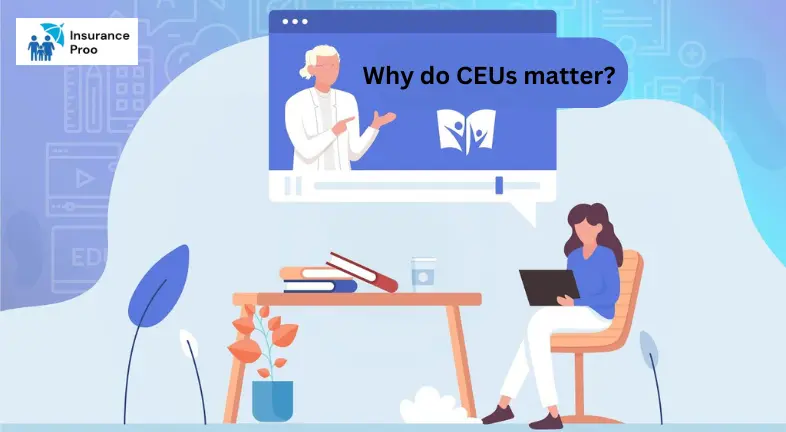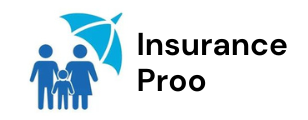INSURANCE CONTINUING EDUCATION

A defined number of credit hours are typically required for insurance continuing education, CFP, CPA, and CLU/ChFC programs over the course of a year or years. Occasionally, there are additional requirements for certain topics, such as ethics and long-term care. After receiving a license from the state department of insurance, insurance agents in the US must complete Insurance Continuing Education requirements in order to continue selling various insurance products.
Since insurance brokers hold state-specific licenses, there is no national accreditation. In order to renew my license, how can I find out how many hours of continuing education I’ll need? For each two-year licensing term, licensees who hold the titles of Property Broker-Agent, Casualty Broker-Agent, Personal Lines Broker-Agent, Life-Only, and/or Accident and Health are required to complete a total of twenty-four (24) hours of continuing education. CEUs support professionals in keeping their state-issued licenses or certifications current.
Regulations governing the number of CEUs required and the time frame for obtaining them are set by the regulatory body that grants licenses or certifications. Which CEUs are valid is also mandated by these bodies. For every two years that their license is in effect, all insurance license holders in New York—including producers and public adjusters—are required to complete fifteen hours of continuing education (CE). If you are licensed in both property/casualty and life/health, you need to complete 30 hours of continuing education, with 15 hours required for each licensing category.
Every two years, Pennsylvania-licensed producers are required to complete 24 hours of Continuing Education. It is not necessary to obtain ethics credits in order to successfully complete PA continuing education. Online continuing education courses for insurance have been permitted in all states since the late 1990s. It is frequently possible to fulfill some of the criteria by reading and doing further independent study. States differ in how many credit hours must be completed in order to renew an insurance license.
The state’s insurance department sets the credit hour standards, which are the basis for all online courses. Only authorized courses can be used to satisfy the state’s continuing education requirements for insurance. After receiving a license from the state department of insurance (DOI), insurance agents in the US must complete Insurance Continuing Education requirements in order to continue selling various insurance products. Since insurance brokers hold state-specific licenses, there is no national accreditation. The CFP, CPA, and CLU/ChFC (PACE) credentials are not like the others because they are managed by a national body.
Do you know about- What Insurance Does Costco Optical Take?
Why do CEUs matter?

Professionals holding state-issued licenses or certifications typically have to fulfill renewal requirements by completing a predetermined number of CEUs on a regular basis. There are differences in rules and regulations. CEUs also assist professionals in staying up to date on the most recent advancements in their field.
To whom can continuing education credits be issued?
Learners may receive continuing education credits from businesses, organizations, and educational institutions. They have to submit the course for CEU certification first, though, before they can proceed. Below, readers can find out more about the certification procedure and the organization that created it.
CEUs Are Needed by Whom?
Obtaining CEUs is a requirement for many professions, such as healthcare, accounting, engineering, and education, in order for employees to stay current with industry best practices.
Why are CEUs required for some professions but not for others?
A license or certification is necessary for many occupations. For these positions to be successful, employees must stay up to date on best practices. CEUs support workers in gaining new information and abilities while assuring businesses that their staff members are capable of contributing significantly.
Can someone earn all the CEUs? Exist any prerequisites or specifications?
This is contingent upon the institution or body providing the CEUs. Certain CEU programs for educators might only accept applicants who are employed by a specific district.
How do CEUs fit into the requirements for licenses and certifications?
The usual requirement for renewing a license or certification is CEU accumulation. Depending on the occupation, certain careers could demand more units than others and offer more alternatives. The procedures for renewal are outlined on websites for professional certifications and state licenses.
How do you determine which CEUs "count" toward the requirements for your line of work?
Websites for licensing and certification provide information on CEU certification providers and authorized CEUs. There are numerous certifying bodies, many of them with a focus on a particular industry or profession.
Methods for Obtaining CEUs

Via a registered provider, prospective students can sign up online for courses that offer CEUs. According to Hoelscher, CEU cross-certification permits students in certain professions to enroll in courses unrelated to their line of work.
“For example, I took a class to earn a certification to operate a gas chromatograph, and the organization providing the certification also obtained approval for us to earn [CEU] credit,” according to him.
Professionals can take online or in-person courses to obtain CEU credit, and registration usually costs a small amount. Several classes are offered on the weekends and in the evenings, allowing students to continue working full-time.
In the classroom, students frequently attend talks by professionals in the field and work in small groups to practice newly acquired abilities. A normal course does not include an essay or test requirement to succeed, while being somewhat similar to a college course.
While CEUs do not administer direct evaluations to students, participants do assess teachers according on their performance.
Evaluation of the speakers is required for courses, but not of the students, according to Hoelscher. “Speakers are evaluated through surveys, which are often required as proof of attendance.” Participants receive a certificate of completion upon course completion, which they must present when submitting an application for the renewal of a license or certification. Employees cannot use the same CEUs toward subsequent renewal requirements after completing the renewal process. Consequently, they must to consistently explore novel CEU prospects and include ongoing education into their daily work regimen.
CONCLUSION
CEUs support professionals in keeping their state-issued licenses or certifications current. Regulations governing the number of CEUs required and the time frame for obtaining them are set by the regulatory body that grants licenses or certifications. Which CEUs are valid is also mandated by these bodies.
A professional’s unit requirements are typically determined by two factors: their place of employment and home state. The CEU procedure entails locating an approved provider and maintaining track of your hours and/or units, however specific requirements may differ. By becoming a member of a professional association that provides CEU resources, employees can quickly locate an approved provider. Professionals provide proof of their CEUs to the appropriate agency or organization close to the renewal deadline.











